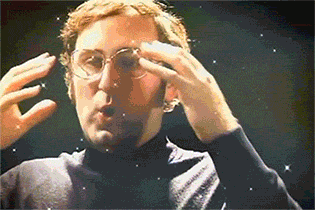- This topic has 41 replies, 28 voices, and was last updated 6 years ago by geetee1972.
-
Cosmologists, physicists or anyone with more science knowledge than me! Question
-
geetee1972Free MemberPosted 6 years ago
My question is as follows:
The universe is estimated to be approximately 13.8bn years old. The most distant galaxy so far observed formed 13.76bn years ago, just 400m years after the Big Bang.
It makes sense to me that it’s position and distance now is not where we see it today since it will have moved due to the expansion of the universe.
I also understand that there was a period of rapid inflation in the early universe that caused spacetime to expand at a rate faster than the speed of light and I also understand that this means there is effectively an event horizon in the universe beyond which we will never be able to see as a result of this (because that area of space is receding from us faster than light speed). Cosmologists talk about not being able to know just what lies beyond this event horizon; the implication is that the observable universe could be very small relative to the actual universe.
What I can’t reconcile in my head is the apparent (to me) contradiction of this distance/position and time.
If we can observe a galaxy that is 13.76bn years old and therefore existing only 400m years after the big bang, does that not mean that the areas of spacetime we cannot observe (because they are receding too fast) are only those areas that came into existence and have subsequently evolved between time point zero and +400m years? And if that is the case, wouldn’t that suggest that the area of the universe we cannot see is likely to be relatively small?
In addition, why is it that cosmologists state that there is a limit to the ‘look back’ time that is the result of the opacity of the early universe, i.e. before reionisation. Surely the limit to the look back time has less to do with this opacity and more to do with the period of inflation and the faster than light expansion of spacetime?
Please help me understand.
big_scot_nannyFull MemberPosted 6 years agofoof! good thinking required for these questions, I like!
Question a)
i – i think that is correct
ii – depends what you mean by small – from our perspective it would be beyond 13.8bly in any direction we care to look, not exactly small, so maybe ‘thin’ might be better inadequate word? I do see your point though.Quesiton b) perhaps the same thing? In reality, it doesn’t matter, as we can’t see it anyway? I must admit I struggle to get my head around this stuff but the theories I love 🙂
The question that bothers me is: into what is the universe expanding? i.e. what is ‘outside’ our universe? Ferk!
Stevet1Free MemberPosted 6 years agoReading what you wrote it about rapid inflation it seems possible that 99% (or whatever) of matter was emitted in the first 400million years and has ever since been expanding and evolving – and is still beyond what we can ever observe.
I’ve no idea really though.esselgruntfuttockFree MemberPosted 6 years agoAs I’ve said before, space & time are not only queerer than we think, theyr’e queerer than we CAN think.
I’d give up now.
aracerFree MemberPosted 6 years agoI’m not sure any of that necessarily follows. It might be that a LOT of stuff formed in the first 400m years. It might also be that stuff which formed after the first 400m years is also receding too fast.
Not particularly an expert on cosmology so I could be totally wrong, just throwing a bit of logic at it.
tinybitsFree MemberPosted 6 years agoMy answer to that is what is the definition of a universe. In my head it’s the ‘goes on forever nothingness’ however it seems in most theories, it’s the expanding bit only. In my head, there’s a lot of nothing going on more than 13bly and I suppose there could (is) an infinite number of big bangs happening / happened all the time.
The issue with this is that there appears to be no time prior to the big bang, leaving nothing at all before the singularity, but even then, where did either the singularity or the nothingness come from?
molgripsFree MemberPosted 6 years agoWhen the universe expands, you don’t get ‘new’ space. It’s the same space just expanding. It’s like being an ant on the surface of a balloon as it’s being inflated.
With regards matter – that sort of condensed out of the energy that was in the universe as it was expanding. So sort of like water vapour condenses in moist air as the pressure drops.
dangeourbrainFree MemberPosted 6 years agoGiven the reduction in speed of expansion, why would you think the rapid expansion pre event horizon couldn’t be many orders of magnitude faster than that we can see? By which i mean there is no reason to expect 99% of the universe’s expansion wasn’t in that first few moments, a naff analogy would be to watch a slow mo video of an explosion, most of the actual exploding happens very quickly indeed and things don’t decelrate noticeably until they’re well away from the focus.
Also given that pre event horizon is way beyond our grasp of physics is impossible to reasonably hypothesize if it lasted for seconds or trillions of years as our concept of time isn’t valid. If it was moving fast enough is entirely possible it took no time at all until it slowed sufficiently for time to be an extant “thing”.
*im none of the op’s things
nickcFull MemberPosted 6 years agoMy understanding is the Universe is accelerating away from us, not “receding” therefore it is still expanding, and therefore the bits we can never see will always grow larger…
Could be entirely wrong though 😆
edit, forgot the second bit…Ummmm, beginning of the known universe is a singularity, where all physics appears to break down, so it’s not so much you can’t measure time, it’s that the concept of “time” is in of itself not existing…or something.
perchypantherFree MemberPosted 6 years agoGiven that God is infinite, and the universe is also infinite………. would you like a toasted teacake?
woody2000Full MemberPosted 6 years agospace & time are not only queerer than we think, theyr’e queerer than we CAN think.
Yep, we just can’t comprehend it. And if we think we can, then that’s just vanity.
miketuallyFree MemberPosted 6 years agoInflation happened before the universe became opaque. The further back in time that we can see if that first light transmitted after that, which is the CMBR. That was almost 14 billion years ago, but because of the expansion of space-time, it is now much further away. Some parts of space-time are receding faster than the speed of light, so the light they emitted will never reach us.
Given the reduction in speed of expansion,
The rate of expansion is increasing…
dangeourbrainFree MemberPosted 6 years agoThe rate of expansion is increasing…
I’m not sure this is actually decided yet is it? Even if it is though it is a relatively* recent thing and is significantly slower than the initial rapid expansion is it not?
geetee1972Free MemberPosted 6 years agoI’m not sure this is actually decided yet is it? Even if it is though it is a relatively* recent thing and is significantly slower than the initial rapid expansion is it not?
This was established recently (and was quite a shock). It’s why we now have the theory of ‘dark energy’.
Inflation happened before the universe became opaque
I think the universe was born opaque and that inflation happened before reionisation but that might be what you meant.
This video explains it:
[video]https://youtu.be/m7C9TjdziPE?t=40[/video]
nickcFull MemberPosted 6 years agoI’m not sure this is actually decided yet is it?
yes the “red shift” Wavelength of light gets longer as the light from distant galaxies reaches us, ie shifted to red end of visable light spectrum
ellipticFree MemberPosted 6 years agoIf we can observe a galaxy that is 13.76bn years old and therefore existing only 400m years after the big bang, does that not mean that the areas of spacetime we cannot observe (because they are receding too fast) are only those areas that came into existence and have subsequently evolved between time point zero and +400m years?
You might be thinking (at least residually) of the big bang as something that happened at a specific localised point, with everything then receding away as the universe expands.
Its not, its the moment when all of spacetime came into existence and it happened *everywhere in space*. Just because that space was compressed to a tiny distance-scale doesn’t stop there having been an arbitrarily-large amount of it outside our accessible “event horizon” from the very beginning.
miketuallyFree MemberPosted 6 years agoInflation happened before the universe became opaque
I think the universe was born opaque and that inflation happened before reionisation but that might be what you meant.[/quote]
I edited my comment for clarity (ironically), and missed changing opaque to transparent.
The rate of expansion is increasing…
I’m not sure this is actually decided yet is it? Even if it is though it is a relatively* recent thing and is significantly slower than the initial rapid expansion is it not?[/quote]
It’s still slower than inflation, yes.
Measurements suggest the rate of expansion is increasing, hence the hypothesis of dark energy.
Even the idea of inflation isn’t settled. It feels a little like a fudge to make a model fit measurements.
dangeourbrainFree MemberPosted 6 years agoThis was established recently (and was quite a shock). It’s why we now have the theory of ‘dark energy’.
Time for some more reading then – last i looked (which was quite a while ago) there was still a lot of argument as to it being permanent and “universal”. It got a bit much for me when i tried to get my head around some of the non dark matter believers arguing it was local shrinkage looking like universal expansion, though i got the impression that was a bit grassy knoll.
phil40Free MemberPosted 6 years agoI think……….(always a good preface)
That cosmological expansion happened between 10*-36 and 10*-32 seconds after the big bang. aaaaAfter that first rapid expansion the rate of exansion slowed.
By 400million years after the big bang there would already have been huge parts of the universe outside our observable cone (the distance is so great they are receding from us at greater than the speed of light so we can never obesrve them). I think this can happen because no information is being passed by the expansion of space and so therefore it isn’t limited by c.
So I think that 10*-31 seconds after the big bang, the universe was already o bug that there were sections that would never be able to send a signal to each other due to that signal travelling slower than the rate of expansion due to distance. $00million years later our observable universe is larger, but we still have an observable horizon determined by those first 10*-36 seconds. Reionisation was WAAAYYY later than this so is a sperate issue of why we can’t see all the way back through our observable section of the universe.
I think
wobbliscottFree MemberPosted 6 years agoYou say the area outside of the universe which it is expanding into. Well the Big Bang created space so there is no area or physical space the universe is expanding into. there is simply nothing.
I think it is proved the universe is expanding at an accelerating rate, so not a fudge. It’s been observed and measured. What is a fudge applied in an attempt to explain this is the concept of ‘dark energy’ which is a catch-all bucket of stuff we simply don’t understand but know is key to understanding the mechanism of expansion and why it is accelerating and the question of what lies beyond.
jimoiseauFree MemberPosted 6 years agoPhysicist here. First of all:
The universe is estimated to be approximately 13.8bn years old. The most distant galaxy so far observed formed 13.76bn years ago, just 400m years after the Big Bang
13.8 billion – 13.76 billion = 40 million, so one of these figures is wrong.
yes the “red shift” Wavelength of light gets longer as the light from distant galaxies reaches us, ie shifted to red end of visable light spectrum
You’re confounding two different things here. The red shift gets greater because those objects are receding faster. They’re further away because they’re receding faster than the objects that are closer, and always have been. Nothing to do with acceleration.
If we can observe a galaxy that is 13.76bn years old and therefore existing only 400m years after the big bang, does that not mean that the areas of spacetime we cannot observe (because they are receding too fast) are only those areas that came into existence and have subsequently evolved between time point zero and +400m years?
You’re confusing the visible universe with the observable universe. The observable universe is the age of the universe multiplied by the speed of light (potentially “visible” using gravitational waves or something else unaffected by opacity to photons). The visible universe is smaller, as it only includes anything after the universe was no longer opaque. There’s nothing to suggest that the observable universe is the whole universe.
crimsondynamoFree MemberPosted 6 years agoSo let’s get this straight. In the first nano second after the big bang the universe expanded/inflated way faster than “c”, then slowed right down, and then started speeding up again?
stevextcFree MemberPosted 6 years agoYou’re confounding two different things here.
The most fundamental confusion though is simpler… just much harder to get your head around …
Space isn’t linear in terms of length… and length is from our dimensional perspective linked to time but isn’t really from a different dimension…. we just perceive it as such…
So talking/thinking about the size of space behind a horizon that is defined from our own time/space is just “wrong” ….
scudFree MemberPosted 6 years agoFound this was a really good book for me as a layman
Marcus Chown – Quantum Theory Cannot Hurt You
PJM1974Free MemberPosted 6 years agoOkay, here goes:
Given that God is infinite, and that the universe is also infinite…
Would you like a toasted teacake?
nickcFull MemberPosted 6 years agoYou’re confounding two different things here.
more than likely… 😆 happy to be corrected by an expert
dangeourbrainFree MemberPosted 6 years ago42. I thought everyone knew that.
47 surely?
[Edit] I’m sure i remember it being both at various points in one of the 5 books, but the internet disagrees, so I’m wrong[/edit]
avdave2Full MemberPosted 6 years agopotentially “visible” using gravitational waves or something else unaffected by opacity to photons
I went to a really interesting talk by Kip Thorne recently where he said he was now fairly confident that gravitational waves would allow to look back to the point a few milliseconds after the big bang as detectors are improved.They already have in place plans for detectors with a far greater sensitivity than are available now and are confident in the theory behind then going on to construct even more sensitive detectors. At least I think that’s what he said, despite being a fantastically articulate speaker with an ability to explain very complex things to a general audience it’s still very complex things 🙂
hols2Free MemberPosted 6 years agoMy understanding is that, yes, the area outside our light cone is increasing so eventually we’ll effectively be alone in an empty void, with no other objects within our light cone. I think that’s basically equivalent to saying that, as the size of the universe expands, the average temperature will decrease until it approaches absolute zero.
The topic ‘Cosmologists, physicists or anyone with more science knowledge than me! Question’ is closed to new replies.











